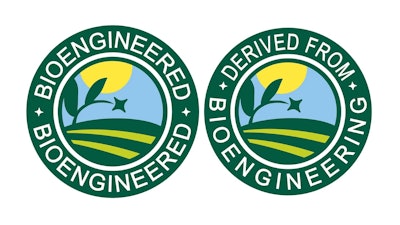
On Thursday, the United States Department of Agriculture's (USDA) Food Safety and Inspection Service (FSIS) posted a notice of the National Bioengineered Food Disclosure Standard (NBFDS) and related enforcement activities by the Agriculture Marketing Service (AMS).

FSIS said the NBFDS defines bioengineered foods as those that contain detectable genetic material that has been modified through certain laboratory techniques and cannot be created through conventional breeding or found in nature. Unless exempted, food manufacturers, importers and certain retailers will be required to ensure bioengineered foods are appropriately disclosed on the product label at retail.
A food product that contains a meat, poultry or egg product as the first ingredient on the ingredient list on the label would not be subject to the regulations under the NBFDS. Likewise, a multi-ingredient food product that contains broth, stock, water or similar solution as the first ingredient, and a meat, poultry or egg product as the second ingredient on the label would also not be subject to the regulations under the NBFDS. If, however, a meat, poultry or egg product is the third most predominant ingredient or lower, the food product would be subject to the regulations under the NBFDS.
AMS will enforce compliance with the NBFDS beginning on January 1, 2022.






















